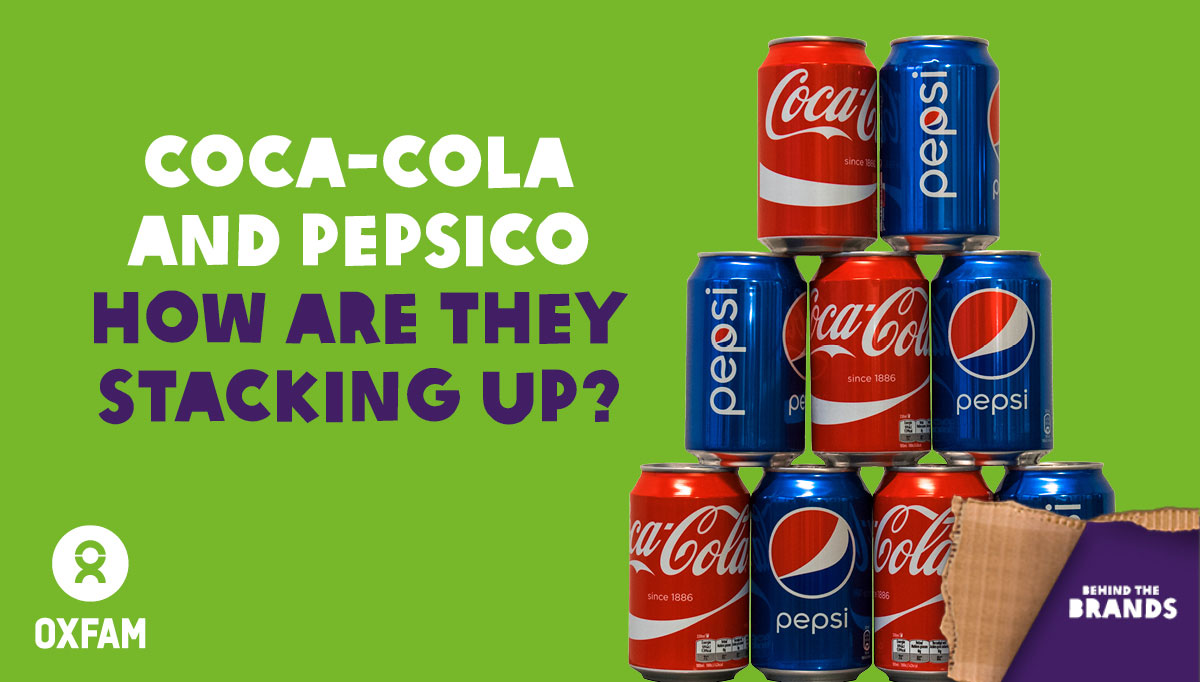This blog was originally posted at: http://politicsofpoverty.oxfamamerica.org/2016/10/how-are-coca-cola-and-...
Coca-Cola and PepsiCo have adopted “zero-tolerance” for land grabs in their operations around the world. Oxfam checks in on how they’re doing in Brazil.
Ever since Coca-Cola and PepsiCo adopted ‘zero tolerance’ commitments for land grabs in 2013 and 2014, respectfully, Oxfam has watched to ensure they’re effectively implementing them, and has provided advice and input to help them improve. A fundamental component of this implementation is understanding the impact of their suppliers’ operations on land rights. Impact assessments, when done well, help companies identify where they or their suppliers are at risk of infringing on community land rights and develop steps needed to mitigate risks and address any problems, thereby getting them closer to zero.
The key here is when done well.
Assessing the land rights risks and impacts can be a challenge, to be sure. Land is a highly context-specific human rights issue with many factors to consider: Strength of land governance systems, suppliers’ expansion plans, reliability of external data sources, types of land conflicts, how marginalized groups have experienced land conflict throughout history, cultural norms around women’s land rights, and more. But in a world where millions of people who depend on their land for their lives and livelihoods lack secure land titles and the ability to protect their resource from outside investments, the stakes are high. To ensure respect for land rights throughout their supply chains, companies need to be bold with their commitments and get these assessments right.
How do companies get impact assessments right? For starters, the assessment team must:
- Know the local land rights context;
- Engage with local communities;
- Select assessment locations where company operations pose high risks to communities, not simply the sites that are most material for the company.
These three elements are chief among many incorporated in a new independent evaluation, commissioned by Oxfam, to understand the quality of PepsiCo's and Coca-Cola’s efforts to assess land issues in their sugarcane sourcing in Brazil. The companies’ assessments are part of their land rights commitments, and in the case of Coca-Cola is one of 28 assessment studies it plans to conduct by 2020.
So, how’d they do?
PepsiCo: In need of a new approach
PepsiCo adopted an audit-based approach in Brazil, looking at three mills in São Paulo. The external evaluation highlighted significant ways in which PepsiCo needs to improve its approach, which is why the new commitments PepsiCo made this week are particularly significant:
- PepsiCo recognizes that it needs to go further in Brazil. It is exploring how to take forward “an independent assessment of potential salient issues associated with sugar cane production in Brazil through a multi-stakeholder process in line with good practice”. PepsiCo should set a deadline for when it will complete this next assessment to make this commitment more credible.
- PepsiCo is integrating recommendations of Oxfam and from the external evaluation into all future assessments and ongoing processes in Thailand and Mexico, rather than relying on an audit approach, as it had originally committed to. It set new deadlines for these processes, March 2017 for Thailand, and the first phase of Mexico by the end of 2016, with a second phase completed in 2017. Encouragingly, these processes will include the participation of affected communities.
- Significantly, PepsiCo has committed to conduct an independent assessment around both human rights and deforestation risks in its palm oil supply from Indonesia by the end of 2017, where palm oil is a high-risk commodity contributing to large scale forest clearance and violation of rights of local communities and workers.
- PepsiCo should publish additional summary information of its audit process and findings in the Philippines, an important step toward greater transparency, by the end of 2016. Greater transparency can enable outside groups to help the company continue to improve, and elicits greater trust among stakeholders – including investors – of the efficacy of the steps the company is taking to implement its commitments.
Coca-Cola: Comprehensive in scope, now time for action
- The assessment team examined 21 of the 28 sugar mills Coca-Cola sources from in Brazil, interviewing nearly 1,000 farmworkers, and highlighted existing land issues in its supply chain and gaps in the mills’ land policies. With these issues identified, Coca-Cola now knows some of the steps it needs to take to address them and prevent future problems.
- Even still, the independent evaluation identified several ways in which the company can improve future practice. Prior to publication of the evaluation, Coca-Cola committed to integrate many of these recommendations into its efforts, such as focusing on women’s land rights, publishing the studies in local languages, and developing action plans to address findings.
- Coca-Cola also published its assessment methodology and mill and farm questionnaires. These are important new disclosures, enabling greater stakeholder participation in the company’s process and eliciting greater trust in its efforts.
While in different stages of their journeys, both companies are taking important steps to implement their ‘zero tolerance’ for land grabs commitments. Oxfam will continue to call on PepsiCo to follow through in full on its commitments made. Oxfam expects both companies to continue to improve, and to do more to encourage its peer and supplier companies to also take steps to address land rights issues. With the backing of nearly 750,000 supporters who took action on Behind the Brands, Oxfam will continue to monitor PepsiCo and Coca-Cola’s efforts, and to hold them accountable for respecting land rights throughout their supply chains.

